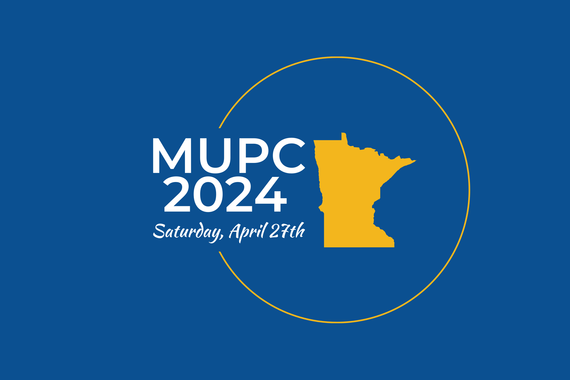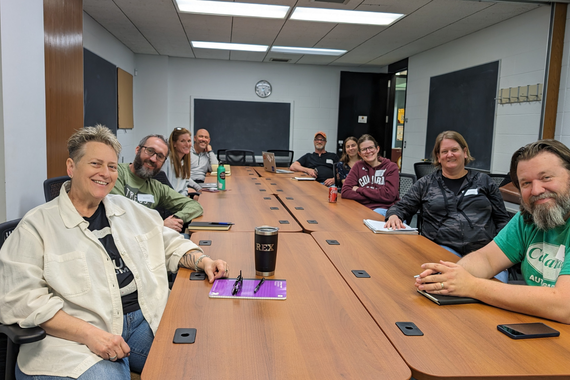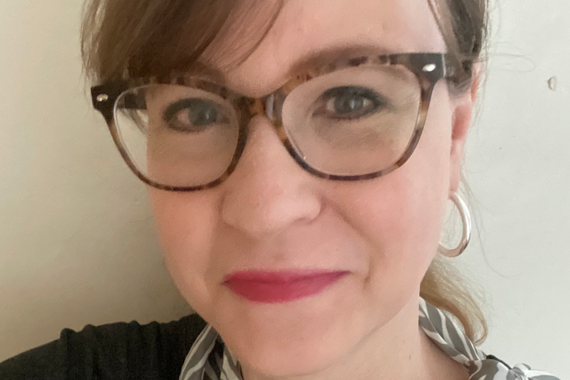Building Pathways from Undergrad to Grad School
This article is the second in a series about building pathways for underrepresented students to better access psychology programs and higher education, and to achieve their educational and career goals. Here we examine the work of graduate students from the Department of Psychology, the Institute of Child Development, and the Department of Educational Psychology - known as Tri-Psych - at the University of Minnesota.
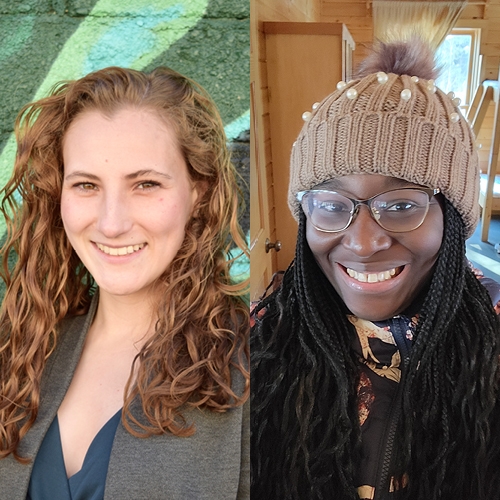
Kate Carosella and Ekomobong Eyoh are busy. Not only are they pursuing doctoral degrees in Clinical Science and Psychopathology Research (Department of Psychology) and Developmental Psychopathology and Clinical Science (Institute of Child Development) at the University of Minnesota, respectively, they also serve as co-directors of the highly successful Next-Gen Psychology Scholars Program (NPSP). NPSP, which Carosella helped found along with ICD alum Meriah DeJoseph, PhD in 2020, is a virtual graduate student-led mentorship program for underrepresented (e.g., BIPOC, low-income, first-gen, LGBTQIA+) undergraduates and post-baccalaureates interested in applying to psychology PhD programs. The program has grown significantly since its inception, with 350 mentors across multiple institutions serving over 650 mentees in 2023-24.
In 2020, during the initial months of the pandemic, DeJoseph had the idea to turn the unofficial mentorship curriculum she had developed while working in her advisor’s lab into something bigger. Carosella, who had experience running student organizations, volunteered to help. With the funding they received from the Tri-Psych Diversity Fund, they started NPSP, with the goal of helping to diversify the next generation of psychologists in order to tackle society’s most pressing issues. DeJoseph and Carosella believe that diversifying the next generation of psychologists will “enhance the questions we ask, the methods we use to capture diverse lived experiences, and ensure that the conclusions we draw are rooted in context and integrity.” In describing the specific role NPSP plays, Carosella stated,
Research has identified graduate school as a bottleneck because there is a broad diversity of undergraduate psychology majors, but graduate school has such a different population. We’re trying to address that bottleneck [at the point of entry]....We focus specifically on admissions. The hidden curriculum is such a huge facet of the admissions process. Knowing what to ask of principal investigators, the timing of when things should be done, etc….[Prior to applying], I didn’t know what I needed to do to get into a PhD program beyond taking the GRE.
NPSP seeks to help mentees successfully prepare for and navigate the admissions process via one-on-one mentorship, programming, and providing resources. First and foremost, NPSP pairs each mentee with a mentor by program area and/or a shared identity background. Mentees and mentors meet monthly via Zoom to discuss mentee graduate school plans, the process of applying, areas of focus for professional development (e.g., how to build a line of research, how to code in R, how to have a social media presence), and any other types of support the mentee may need. In addition, mentees are able to workshop with their mentors their application materials, including getting feedback on their personal statements. Carosella described the value of individual mentorship:
I went to Johns Hopkins [for my bachelors degree] and we had training on how to apply to PhD programs. I still had no idea what I was doing. I met someone through my postbacc who was completing her internship…[She] did that one-on-one mentorship with me. I don’t think I would have gotten in without her.
Beyond the one-on-one mentorship, NPSP hosts a variety of online panels and information sessions that allow participants to hear from current graduate students about their experiences applying to graduate school and being in a PhD program, as well as information on the wide variety of subfields in psychology that may be of interest. NPSP also maintains an online job board where people can post postbaccalaureate position openings for participants who might benefit from additional experience. Finally, the program helps build community and connection among participants who come from similar identity backgrounds and are at the same stage in their education/career journey. Taken as a whole, Carosella described NPSP’s interventions as “helping people do it right the first time so that they don’t waste time, money, heartbreak, get lost along the way, and get disheartened.”
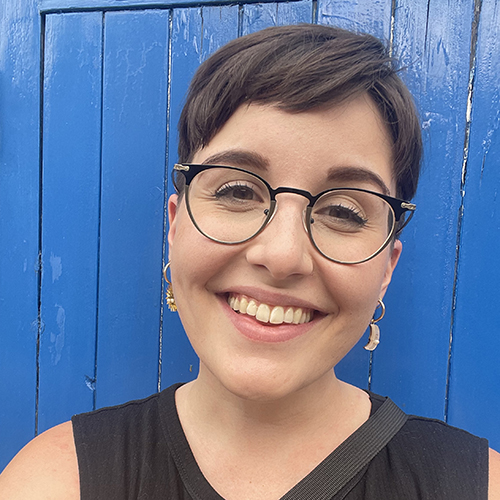
NPSP already has many success stories. Jessica Arend, now a 2nd year doctoral student in Clinical Science and Psychopathology Research in the Department of Psychology at the University of Minnesota, joined NPSP 3 years ago as a mentee. Prior to participating in NPSP, she had applied to several graduate schools without receiving so much as an interview. After participating in the program, they reapplied and was invited to interview at 6 schools; “a success which I partially credit to the confidence and competence that NPSP gave me!” Another NPSP mentee, Inyene Ukpong, is now employed as a full-time research assistant for the NIH-funded Health Brain and Child Development study in the Minnesota Center for Twin and Family Research at the University of Minnesota. Of her experience as a mentee, Ukpong described, “[NPSP] has been very helpful and insightful. It helped me land my current role at the University of Minnesota. I have had great mentors who helped me improve my interview skills, whilst gaining new skills. I have enjoyed being able to connect with people in my aspiring profession and get [advice]."
Among its roster of mentors, NPSP also now has several individuals who were once mentees. Arend currently serves as an NPSP lead mentor as a way for her to personally “pay it forward.” Arend stated,
Even with the competing demands of a PhD program, I've found every moment invested in NPSP to be worthwhile. Seeing my mentees grow and develop as scholars and as people is deeply rewarding….[One of my mentees] just received an offer of admission to one of her top PhD program choices!...What I also love about NPSP is that it is more than the sum of its mentorship pairings. I've seen mentees and mentors form study groups and research collaborations, share employment opportunities, provide moral support, and more. I couldn't be more enthusiastic about NPSP as a vibrant and highly successful venture that is uplifting the brilliant, diverse future scholars of our field.
When asked about the outcomes they are seeing, Carosella described that of the NPSP mentees who responded to their most recent post-program survey, 63% received one or more offers to graduate school compared to the national average of 10%, which is impressive. Eyoh, in turn, described being personally recognized by a newly admitted doctoral student at the University of Minnesota’s Welcome Program in February 2024; “He was an NPSP mentee.” Both the data and the faces of those entering doctoral programs in psychology are a testament to the success of NPSP.
Regarding what’s next for NPSP, Carosella and Eyoh indicated that they would like to keep expanding the program so that every student at the undergraduate/postbaccalaureate level who is interested in psychology has the opportunity to “have at least a relatively well-informed idea of what applying to graduate school looks like.” Because of the time commitment and effort, Carosella and Eyoh are adamant about continuing to pay mentors a stipend. Thus far NPSP has been able to do so given the funding they have received from a number of universities with which members are affiliated (e.g., University of Minnesota, Penn State, University of Maryland), as well as money from donors. Identifying and developing a sustainable source of funding moving forward, though, remains a top priority.
With the structure of NPSP now fully established, Carosella herself will soon be moving on to start her internship, thus passing the torch to Eyoh and another current doctoral student, Mackenzie Nickle, who will serve as the new co-directors. Despite the turnover of both of NPSP’s founders, the astonishing growth, momentum, and success of this program promise many more years of its existence and positive impact. Eyoh remains focused on the ‘why’ when she thinks about the ongoing need for NPSP; “Having [diverse] folks at the table to advance the science is really important. Your presence as a diverse person can bring up ideas that people haven't thought about for decades. That one new idea could spark things that are helpful for all of us.” NPSP has certainly proven that it can help bring diverse folks to the table.
